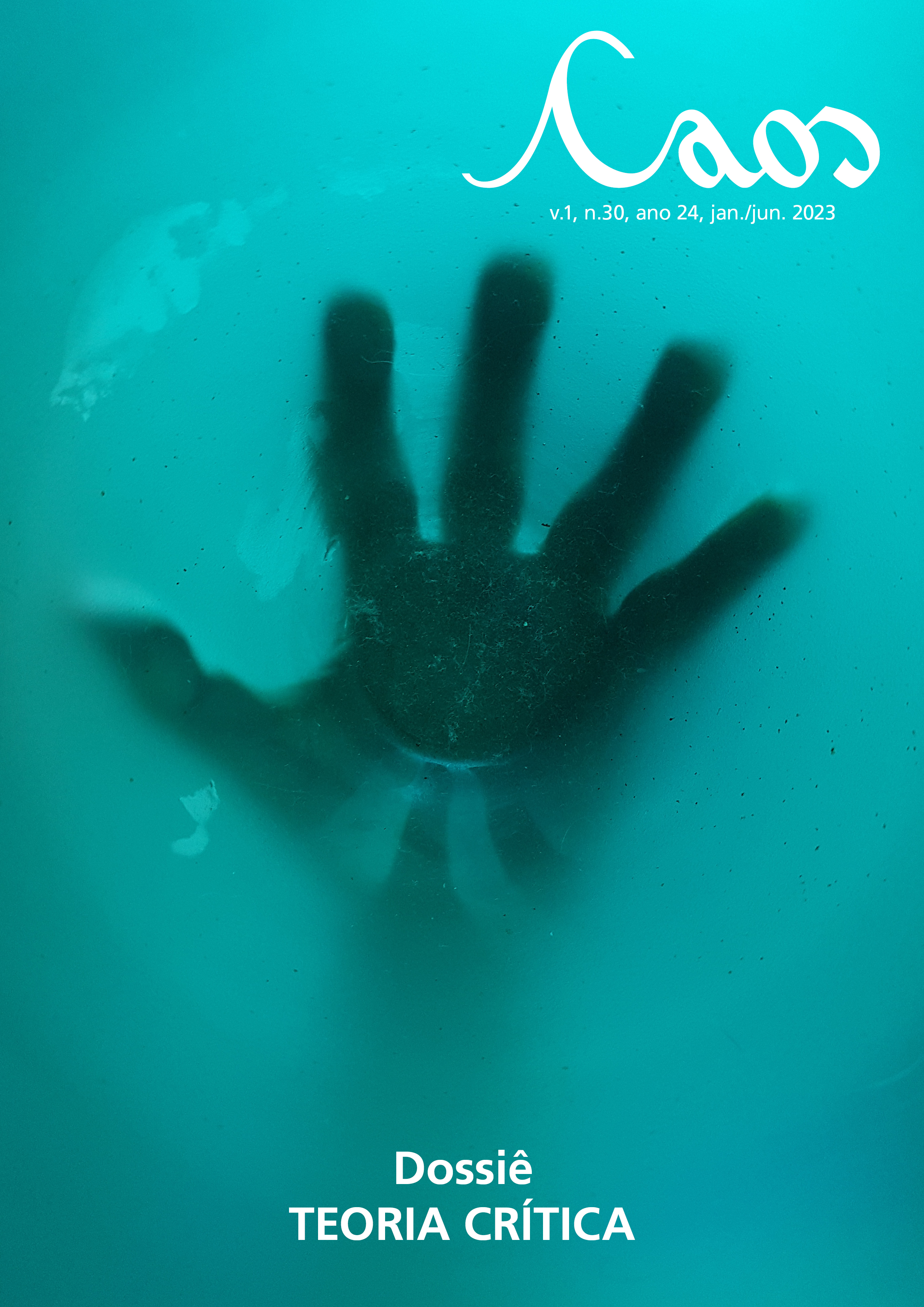THE ANTONINOMIES OF PROGRESS: Theodor Adorno, Amy Allen and the decolonization of critical theory
DOI:
https://doi.org/10.46906/caos.n30.65844.p77-102Keywords:
Theodor Adorno, Amy Allen, postcolonial thought, critique of progress.Abstract
Based on the T. Adorno discussion about the basic elements of modernity, highlighting the barbarism of the civilization process, this text discusses Amy Allen's argument in defense of the necessary intersection between critical theory and postcolonial thought. In order follow the proposal, the structure is (i) presenting Theodor Adorno's thought, with emphasis on his conception of the dialectic of enlightenment, with the sequence of (ii) indicating the possibilities of communication with postcolonial critiques of modernity that serve to synthesize the renewal of critical theory along the Frankfurt lines through Amy Allen — an attempt to respond to the problems of this current theory. The methodology used was the literature review, from the selection of articles and books that address the thought of Theodor Adorno, the dialectic of enlightenment and the postcolonial critique of modernity. From this review, the possibilities of communication between these two theoretical fields were identified as well as the author proposes a renewal of critical theory to deal with current problems.
Downloads
Metrics
Published
Issue
Section
License
Copyright (c) 2023 Anna Kristyna Araújo da Silva Barbosa

This work is licensed under a Creative Commons Attribution-NonCommercial 4.0 International License.
A Caos é regida por uma Licença da Creative Commons (CC): CC BY-NC 4.0, aplicada a revistas eletrônicas, com a qual os autores declaram concordar ao fazer a submissão. Os autores retêm os direitos autorais e os de publicação completos.
Segundo essa licença, os autores são os detentores dos direitos autorais (copyright) de seus textos, e concedem direitos de uso para outros, podendo qualquer usuário copiar e redistribuir o material em qualquer suporte ou formato, remixar, transformar e criar a partir do material, ou usá-lo de qualquer outro propósito lícito, observando os seguintes termos: (a) atribuição – o usuário deve atribuir o devido crédito, fornecer um link para a licença, e indicar se foram feitas alterações. Os usos podem ocorrer de qualquer forma razoável, mas não de uma forma que sugira haver o apoio ou aprovação do licenciante; (b) NãoComercial – o material não pode ser usado para fins comerciais; (c) sem restrições adicionais – os usuários não podem aplicar termos jurídicos ou medidas de caráter tecnológico que restrinjam legalmente outros de fazerem algo que a licença permita.
Recomendamos aos autores que, antes de submeterem os manuscritos, acessem os termos completos da licença (clique aqui).
















